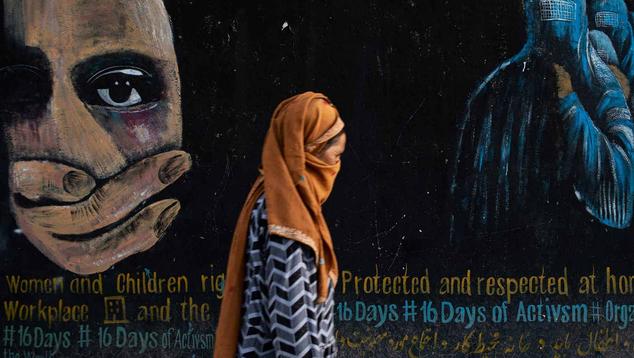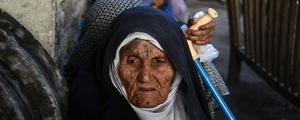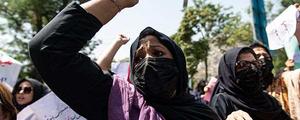Story Highlights
- Record-low 22% of all Afghans say women are treated with respect
- 12% of Afghan women vs. 33% of men feel this way
- Women’s satisfaction with their freedom has dropped to new low of 29%
This article is part of a series based on Gallup’s surveys in Afghanistan one year after the Taliban’s takeover.
WASHINGTON, D.C. -- As women’s rights and freedoms continue to be stripped away in their country, Afghans see women there treated with even less respect and dignity now than when the Taliban first took control over a year ago.
Gallup surveys show that after one year under the Taliban, a record-low 22% of Afghans say women in their country are treated with respect and dignity -- down from the previous low of 31% in 2021.
This percentage had been drifting downward over the past several years as the Taliban gained more territory in Afghanistan, but since they took over, it has dropped 22 percentage points.
The Taliban’s ban last month on women using parks and gyms is the latest in a string of disappointments for Afghan women and girls. Since the Taliban took power, the group has imposed severe restrictions on Afghan women, dictating what they wear and limiting their freedom of movement and their access to work and education.
Under the Taliban, according to U.N. Women, Afghan women have become nearly invisible in society. Despite the Taliban’s promises to the contrary, the harsh edicts are reminiscent of the group’s rule in the 1990s, when they deprived women of their most basic rights.
Just 12% of Women Say Women in Afghanistan Are Treated With Respect
Most of the decline in respect over the past year has come among women. The percentage of Afghan women who say women are treated with respect has dropped from 26% in 2021 to just 12% in 2022. Among men, the percentage has largely stayed the same -- at 33%. However, strong majorities of both men and women agree that women are not treated with respect.
Notably, 2021 marked the first time in the history of Gallup surveys in Afghanistan that the majority of both men and women agreed that women in their country are not treated with respect and dignity. Before then, the majority of men felt women were treated this way.
Majority of Women and Men Dissatisfied With Their Freedom
While Afghan men have not suffered the same restrictions that women have, majorities of men and women in Afghanistan are unhappy with their freedom to choose what they do with their lives. More than six in 10 Afghans (62%) in 2022 are dissatisfied with their freedom, and slightly more than one-third (36%) are satisfied, which ties the previous low.
However, Afghan women continue to be less satisfied than Afghan men. In 2022, women’s satisfaction with their freedom has dropped to a new low of 29%, and 69% are dissatisfied -- almost the reverse of how they felt more than a decade earlier.
Implications
The Taliban’s ban on girls getting an education past the 6th grade and the shrinking presence of Afghan women in their society does not bode well for the future of Afghanistan, where Afghan women make up about half of the country’s population and their contributions are needed across every sector to strengthen the Afghan economy and society.
With 98% of women rating their lives so poorly that they are considered suffering, along with feeling they are not treated with respect, it is no wonder that Richard Bennett, the U.N. special rapporteur on the situation in Afghanistan, stressed that “Afghanistan remains the worst country in the world to be a woman or a girl.”
For complete methodology and specific survey dates, please review Gallup's Country Data Set details.
Learn more about how the Gallup World Poll works.




